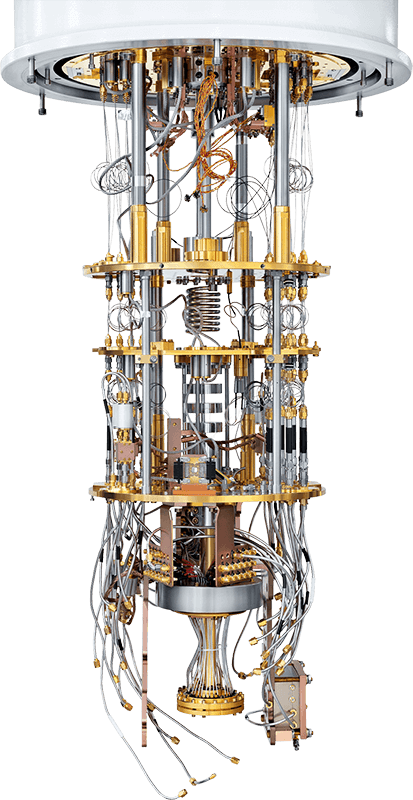 |
| Source: science.org |
Quantum computing is a new type of computing that harnesses the power of quantum mechanics to solve problems that are too complex for classical computers. Quantum mechanics is the study of the behavior of matter at the atomic and subatomic level, where the laws of physics are very different from those that govern the macroscopic world.
One of the key features of quantum mechanics is superposition. Superposition means that a quantum particle can be in multiple states at the same time. For example, a quantum bit, or qubit, can be in a state of 0 and 1 at the same time. This is in contrast to a classical bit, which can only be in one state at a time.
Another key feature of quantum mechanics is entanglement. Entanglement means that two or more quantum particles can be linked together in such a way that they share the same fate, even if they are separated by a large distance.
Quantum computers exploit superposition and entanglement to perform calculations that are impossible for classical computers. For example, a quantum computer could be used to factor a large number into its prime factors much faster than a classical computer. This would have implications for cryptography, as many encryption algorithms rely on the difficulty of factoring large numbers.
Quantum computers are still in their early stages of development, but they have the potential to revolutionize many industries, including medicine, materials science, and finance. For example, quantum computers could be used to develop new drugs, design new materials, and create new financial algorithms.
Here are some specific examples of how quantum computing could be used in the future:
- Drug discovery: Quantum computers could be used to simulate the behavior of molecules and proteins, which could help scientists to develop new drugs and treatments for diseases.
- Materials science: Quantum computers could be used to design new materials with improved properties, such as strength, lightness, and conductivity.
- Financial modeling: Quantum computers could be used to develop new financial algorithms that can better predict market movements and risk.
- Artificial intelligence: Quantum computers could be used to develop new AI algorithms that can learn faster and solve more complex problems than classical AI algorithms.
Quantum computing is a rapidly developing field, and it is not yet clear when quantum computers will be powerful enough to solve real-world problems. However, the potential benefits of quantum computing are enormous, and many companies and governments are investing heavily in research and development.
 |
| Source: rigetti.com |
How to get involved in quantum computing
If you are interested in getting involved in quantum computing, there are a few things you can do:
- Learn about quantum mechanics: The best way to understand quantum computing is to learn about the underlying principles of quantum mechanics. There are many online resources and courses available.
- Learn about quantum programming: Once you have a basic understanding of quantum mechanics, you can start learning how to program quantum computers. There are a few different quantum programming languages available, such as Qiskit and Cirq.
- Join a quantum computing community: There are many online and offline communities where you can discuss quantum computing with other people who are interested in the field. This is a great way to learn from others and stay up-to-date on the latest developments.
Quantum computing is a challenging but exciting field. If you are interested in learning more about it, I encourage you to get started today.
I wonder
ReplyDelete